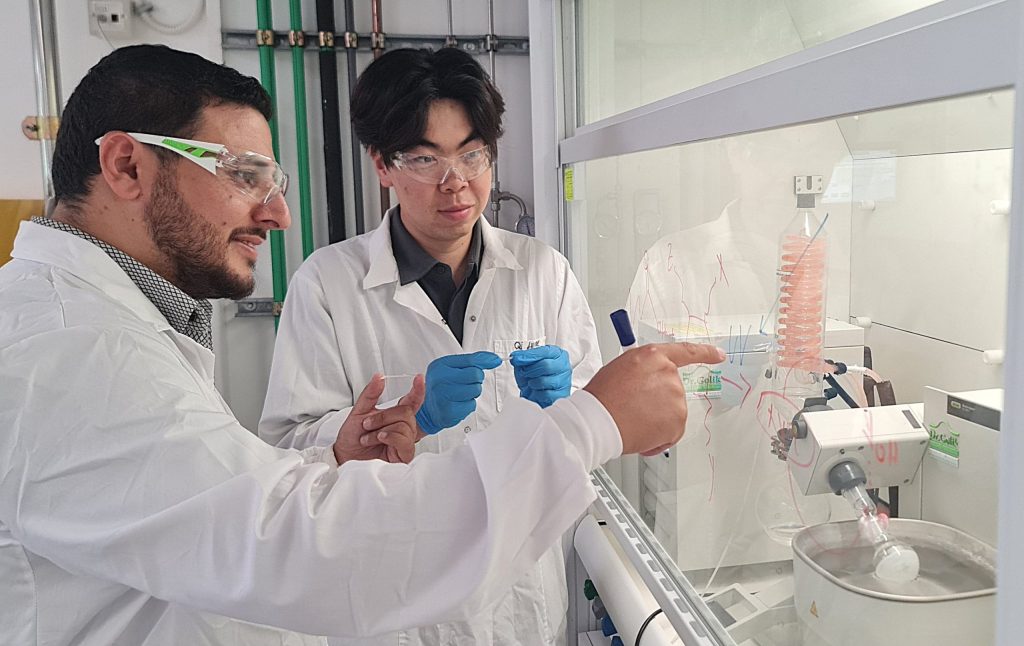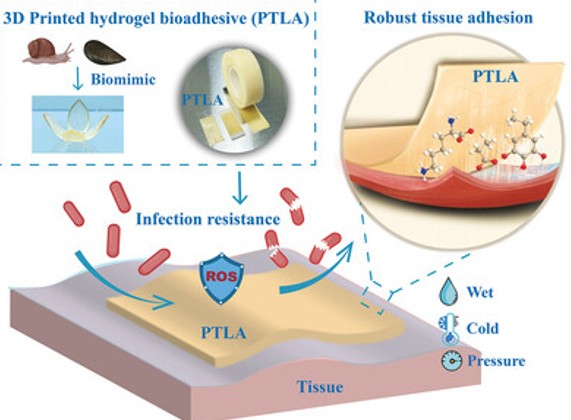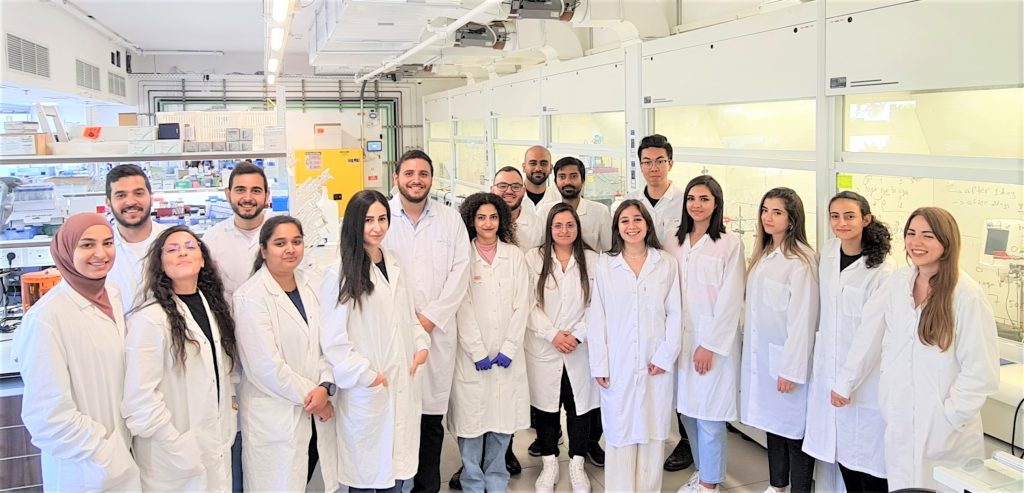Technion Researchers Develop Novel Smart Biomimetic Bioadhesives for Rapid, Trauma-Free Wound Sealing
Traditional methods like sutures and staples, while common in surgery and wound care, often cause unnecessary pain, trauma, and healthcare costs. Those methods could soon be a thing of the past, thanks to a research team from the Wolfson Faculty of Chemical Engineering at the Technion. The team developed an innovative alternative and registered the invention for an international patent: biomimetic hydrogel bioadhesives that can seal wounds quickly and effectively – even under extreme conditions that include wet, underwater, body fluid-exposed, cold, and high-pressure environments. The work was recently published in the Journal of Advanced Materials.

Inspired by how molluscs adhere to wet surfaces, these new PTLA bioadhesives are made from natural tannic acid, polylysine, and other components. Through precise 3D printing, the team can customize these adhesives for different needs, ensuring high reproducibility and tailored applications.
Unlike conventional adhesives, these hydrogels stick strongly to wet tissues, sealing wounds within just 5 seconds and outperforming many commercial and recently reported advanced bioadhesives. Successful tests in ex-vivo lamb organs and in vivo rat models demonstrated their ultrafast hemostasis and sealing capabilities. The thermal-induced shape memory property allows these applications via minimally invasive surgery. What sets PTLAs apart is their exceptional performance under extreme conditions, making them suitable for emergency medicine, battlefield care, and harsh environmental applications.

Additionally, PTLAs offer superior infection resistance, thanks to their antimicrobial and antioxidant properties. Their self-gelling feature allows easy application as a dry powder, supporting long-term storage and practical use in diverse healthcare settings.
This revolutionary work is led by Dr. Shady Farah, head of the Laboratory for Advanced Functional/Medicinal Polymers & Smart Drug Delivery Technologies (www.thefarahlab.com), and Ph.D. Student Qi Wu, with contributions from other Farah lab members — Dr. Meenakshi Chuahan, Dr. Bassma Khamaisi, and Ph.D. Student Eid Nassar-Marjiya. According to Dr. Farah, “We strongly believe that this innovation paves the way for next-generation bio-tapes, sealants, and wound care technologies that minimize trauma and improve recovery.”

For the full article in Journal of Advanced Materials click here



